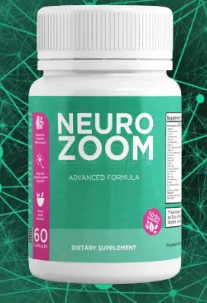
Peaceful Mind State
What is the Best Brain Boosting: Top Tips to Improve Memory and Cognitive Function
Understanding Cognitive Health
What is Mild Cognitive Impairment?
Mild cognitive impairment (MCI) is a condition that affects memory and cognitive function, but not severely enough to interfere with daily life.
MCI is a transitional stage between normal cognitive aging and dementia.
Symptoms of MCI include memory loss, difficulty with problem-solving, and trouble with learning new information.
Causes of Cognitive Decline and Memory Loss
Age-related changes in the brain contribute to cognitive decline and memory loss.
Risk factors for cognitive decline include genetics, high blood pressure, diabetes, and lack of physical activity.
Certain medical conditions, such as Alzheimer’s disease, can also cause cognitive decline and memory loss.
Physical Health and Brain Function
The Benefits of Regular Exercise for Brain Health
Regular exercise improves blood flow to the brain, boosting cognitive function and memory.
Exercise promotes the growth of new brain cells and forms new neural connections.
Physical activity reduces the risk of chronic diseases, such as heart disease and diabetes, which can affect brain health.
How Sleep Affects Cognitive Function
Sleep plays a crucial role in memory consolidation and learning.
Lack of sleep can impair cognitive function, including attention, memory, and decision-making.
Aim for 7-9 hours of sleep per night to support brain health.
Managing Chronic Health Problems for Better Brain Health
Managing chronic health conditions, such as high blood pressure and diabetes, can help reduce the risk of cognitive decline.
Regular health check-ups and following a healthy lifestyle can help prevent chronic diseases.
Mental Stimulation and Engagement
The Importance of Staying Mentally Active
Engaging in mentally stimulating activities, such as reading and puzzles, can build cognitive reserve.
Mental stimulation can reduce the risk of cognitive decline and memory loss.
Learning new skills and activities can help keep the brain active and challenged.
Learning New Skills and Activities for Brain Health
Learning a new language, playing a musical instrument, or taking up a new hobby can improve cognitive function.
Engaging in creative activities, such as painting or writing, can also support brain health.
Novelty and variety can help keep the brain active and challenged.
Nutrition and Brain Function
Eating a Brain-Boosting Diet
A diet rich in fruits, vegetables, whole grains, and lean protein can support brain health.
Foods high in omega-3 fatty acids, such as salmon and walnuts, can improve cognitive function.
Limiting processed foods and added sugars can help reduce the risk of cognitive decline.
Foods that Support Brain Health
Leafy green vegetables, such as spinach and kale, are rich in antioxidants and support brain health.
Berries, such as blueberries and strawberries, are high in antioxidants and may improve memory.
Nuts and seeds, such as almonds and pumpkin seeds, are rich in healthy fats and antioxidants.
Stress Management and Mental Health
The Impact of Stress on Cognitive Function
Chronic stress can impair cognitive function, including memory and decision-making.
Stress can also increase the risk of anxiety and depression.
Engaging in stress-reducing activities, such as meditation and yoga, can help manage stress.
Tips for Managing Stress and Anxiety
Practice relaxation techniques, such as deep breathing and progressive muscle relaxation.
Engage in regular exercise to reduce stress and anxiety.
Connect with friends and family to build social support.
Memory Improvement Techniques
Utilizing Mnemonic Devices
Mnemonic devices, such as acronyms and rhymes, can improve memory.
Using visualization techniques, such as mind palaces, can also enhance memory.
Repetition and rehearsal can help solidify information in long-term memory.
Structuring and Organizing Information
Organizing information into categories and structures can improve memory.
Using headings and subheadings can help break down complex information.
Creating mental maps and diagrams can also aid in memory.
Practical Tips for Improving Memory
Focus Your Attention and Avoid Distractions
Minimize distractions, such as turning off notifications and finding a quiet space.
Focus attention on the information to be learned.
Break down complex information into smaller chunks.
Relate New Information to Things You Already Know
Connect new information to existing knowledge and experiences.
Use analogies and metaphors to help understand complex concepts.
Create mental associations between new and existing information.
Social Connections and Brain Health
The Benefits of Spending Time with Others
Social connections can reduce the risk of cognitive decline and memory loss.
Engaging in social activities, such as volunteering, can build cognitive reserve.
Connecting with friends and family can also support mental health.
Building Healthy Relationships for Brain Health
Nurture relationships with friends and family.
Engage in activities that bring joy and social connection.
Build a support network to reduce stress and anxiety.
Maintaining a Healthy Brain
The Importance of Regular Exercise and Physical Activity
Regular exercise can reduce the risk of chronic diseases, such as heart disease and diabetes.
Physical activity can also improve cognitive function and memory.
Aim for at least 150 minutes of moderate-intensity exercise per week.
Getting Enough Sleep and Practicing Stress Management
Prioritize sleep and aim for 7-9 hours per night.
Engage in stress-reducing activities, such as meditation and yoga.
Practice relaxation techniques, such as deep breathing and progressive muscle relaxation.
When to Seek Help
Recognizing the Signs of Memory Loss and Cognitive Decline
Difficulty remembering recent events or learning new information.
Trouble with problem-solving and decision-making.
Mood changes, such as depression and anxiety.
Resources for Supporting Cognitive Health
Consult with a healthcare professional for personalized advice.
Engage in cognitive training programs and brain-stimulating activities.
Connect with support groups and online resources for cognitive health.
People With Early Alzheimer’s Do This Bathroom Mistake
One startling new scientific discovery is currently sending shockwaves through the world of Alzheimer’s research…
According to the scientists, there’s a healthy substance in your bathroom drawer that may speed up the development of Alzheimers’
Possibly causing your neurons to die twice as fast and your memory to eventually completely shut down.
Fortunately, this memory robbing substance has now been exposed in a shocking new video…
But you need to hurry…
Because the pharmaceutical companies that produce nauseating Alzheimers’ drugs will do anything to take the video down as soon as they catch wind of it.

Why is my memory so strong?
Several studies have demonstrated that dopamine neurotransmitters influence memory. For humans, researchers are finding that a higher density of dopamine receptors on the hippocampus helps improve episodical memory. 27 February 2013.
What is it called when you have a really good memory?
A person prone to hyperthymicemia remembers most of his life events very vividly. Eidetic memory enables people to remember pictures quickly despite only seeing them once. August 8, 2020.
What is a brain boost?
Tell me the best way for people to increase mental clarity and increase their concentration in a certain area? "There's lots of potential to use herbs for mental clarity or mental alertness," says Ray Sahelian, MD.
Best Brain Boosters in the Market with effective Results
Read about this product here
Conclusion
Summary of Top Tips for Improving Memory and Cognitive Function
Engage in regular exercise and physical activity.
Prioritize sleep and practice stress management.
Eat a brain-boosting diet and stay hydrated.
Engage in mentally stimulating activities and build cognitive reserve.
Connect with friends and family to build social support.
Seek help if experiencing signs of memory loss or cognitive decline.

.jpg)
No comments:
Post a Comment